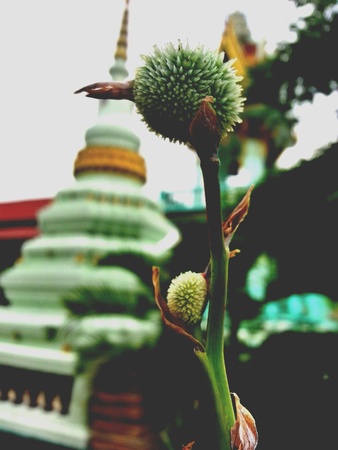Introduction to Eco-Friendly Pest Control
As British gardeners strive to nurture vibrant, healthy gardens, the need for effective pest control has never been more apparent. However, traditional chemical-based methods can pose significant risks not only to plants but also to cherished garden wildlife such as hedgehogs. Eco-friendly pest control offers a sustainable alternative, focusing on natural solutions that protect plants while preserving the delicate balance of local ecosystems. By adopting environmentally conscious practices, gardeners across the UK can reduce harm to beneficial species and ensure their gardens remain a haven for both flora and fauna. This approach reflects a growing awareness of environmental responsibility in British horticulture, aligning with national efforts to support biodiversity and wildlife conservation.
Common Garden Pests in the UK
British gardens are home to a diverse range of flora, but unfortunately, they also attract an array of pests that can compromise plant health and disrupt local wildlife such as hedgehogs. Understanding which pests are most prevalent in the UK is essential for developing eco-friendly control strategies that protect both your plants and beneficial garden visitors.
Typical Pests Encountered in British Gardens
The climate and varied habitats found across the UK create ideal conditions for several common garden pests. Below is an overview of the most frequently encountered species:
| Pest | Description | Potential Impact on Gardens |
|---|---|---|
| Slugs | Moisture-loving molluscs, especially active at night or after rain. | Feed on seedlings, leaves, and soft fruit, often causing significant damage to young plants. |
| Aphids (Greenfly & Blackfly) | Tiny sap-sucking insects found clustered on stems and undersides of leaves. | Weaken plants by draining sap, promote fungal growth (sooty mould), and transmit plant viruses. |
| Vine Weevils | Small beetles whose larvae feed on plant roots while adults chew notches in leaves. | Larval root damage can kill container plants and ornamental shrubs; adult feeding causes cosmetic damage. |
| Caterpillars | The larval stage of butterflies and moths; some species are voracious leaf eaters. | Defoliate plants rapidly, affecting vegetable crops and ornamental foliage. |
| Red Spider Mites | Tiny arachnids thriving in hot, dry conditions, often visible as fine webbing on plants. | Cause yellowing leaves, reduced vigour, and eventual plant decline if infestations are heavy. |
Why Eco-Friendly Pest Control Matters
Traditional chemical controls may be effective against these pests but can inadvertently harm beneficial wildlife such as hedgehogs, birds, and pollinators. Hedgehogs, for example, naturally consume slugs and other invertebrates; using non-selective pesticides can reduce their food sources or even poison them directly. An eco-friendly approach not only minimises environmental impact but also encourages a balanced ecosystem where natural predators help keep pest populations in check.

3. Traditional vs. Eco-Friendly Approaches
When it comes to safeguarding your garden, the choice between conventional chemical-based pest control and eco-friendly alternatives is pivotal for both plant health and wildlife preservation. Chemical pesticides have long been the standard in British gardens for their immediate effectiveness in eradicating pests. However, these substances often contain toxic compounds that not only disrupt the natural balance of your outdoor space but also pose significant risks to beneficial creatures such as hedgehogs. Hedgehogs, a cherished symbol of British wildlife, are particularly vulnerable as they may ingest contaminated slugs or insects, leading to poisoning and population decline.
In contrast, sustainable, wildlife-friendly pest control methods emphasise prevention and harmony with nature. These approaches include encouraging natural predators like birds and ladybirds, utilising barrier methods such as copper tape or netting, and applying organic solutions like neem oil or garlic sprays. Such practices maintain the ecological balance, ensuring that while pests are managed, non-target species—including pollinators and hedgehogs—remain safe. Furthermore, these eco-friendly techniques align with the growing movement across the UK towards greener gardening habits and the protection of native fauna. In summary, shifting from traditional chemicals to sustainable alternatives not only supports healthier plants but also nurtures the diverse wildlife that makes British gardens truly special.
4. Protecting Hedgehogs: Why It Matters
Hedgehogs are cherished icons of British wildlife, often spotted in gardens, parks, and rural hedgerows. Their presence is more than just a delight for nature lovers—they play a vital role in maintaining the health and balance of local ecosystems. Hedgehogs consume vast quantities of insects, slugs, and other invertebrates, providing a natural form of pest control that benefits both gardeners and agricultural landscapes.
The Ecological Role of Hedgehogs
Hedgehogs contribute significantly to biodiversity by controlling populations of common garden pests. This natural predation supports plant health and reduces the need for chemical interventions. The table below highlights the main ecological contributions of hedgehogs:
Ecological Contribution |
Impact on Gardens & Wildlife |
|---|---|
| Natural Pest Control | Reduces reliance on pesticides; keeps slug and insect numbers in check |
| Biodiversity Support | Encourages a varied ecosystem by preying on dominant species |
| Soil Health Improvement | Aerates soil while foraging, aiding plant growth |
The Risks of Conventional Pest Control Methods
Despite their importance, hedgehogs face significant threats from some traditional pest control methods commonly used in the UK. Many chemical pesticides and slug pellets contain substances that are toxic not only to target pests but also to non-target species such as hedgehogs. When hedgehogs ingest contaminated prey or come into direct contact with these chemicals, they can suffer from poisoning, injury, or even death.
Common Hazards from Traditional Pest Control:
- Pesticide poisoning from eating contaminated insects or slugs
- Physical harm from traps or barriers designed for larger pests
- Habitat disruption due to overuse of chemicals affecting soil and plant life
This underlines the urgent need for eco-friendly alternatives that protect plants without compromising the safety of hedgehogs and other beneficial wildlife. By choosing sustainable pest control solutions, we can help ensure that hedgehog populations continue to thrive as a valuable part of our local environment.
5. Plant Protection Solutions That Support Wildlife
Physical Barriers: A First Line of Defence
When it comes to eco-friendly pest control, physical barriers are a straightforward yet highly effective approach. Gardeners across the UK can utilise fine mesh netting or horticultural fleece to shield vegetable patches and flower beds from common pests such as caterpillars, aphids, and slugs. For hedgehogs, these barriers pose no risk, provided that they are secured properly and do not restrict ground-level movement. Always ensure there are gaps or dedicated hedgehog highways at fence bases to allow these beneficial mammals free passage through your garden.
Companion Planting: Harnessing Nature’s Synergy
Companion planting is another well-regarded technique among British gardeners seeking both plant health and wildlife conservation. By interspersing pest-repellent species like marigolds, chives, or nasturtiums with your primary crops, you can naturally deter unwanted insects without resorting to chemicals. Plants such as lavender and borage not only repel pests but also attract pollinators and support the diet of hedgehogs by sustaining healthy insect populations—an essential food source for these nocturnal visitors.
Encouraging Natural Predators
Supporting native predators is a cornerstone of sustainable pest management. Birds, frogs, and predatory beetles all play vital roles in controlling garden pests while coexisting harmoniously with hedgehogs. Installing bird feeders, log piles, or small ponds can foster habitats for these helpful creatures. Avoid using slug pellets and chemical sprays, as these toxins can accumulate in the food chain and inadvertently harm hedgehogs who consume contaminated prey.
A Holistic Approach for Balanced Gardens
The most effective eco-friendly pest control strategy combines several methods for long-term success. By layering physical barriers with companion planting and fostering a thriving ecosystem of natural predators, you create a resilient garden environment where both plants and hedgehogs flourish. This integrated approach not only safeguards your garden’s productivity but also supports the UK’s cherished wildlife heritage.
6. Best Practices for British Gardeners
Integrating Eco-Friendly Solutions into Your Daily Routine
Adopting eco-friendly pest control methods in your garden not only protects your plants but also supports the thriving of local wildlife, including hedgehogs. For British gardeners, this means making conscious choices that fit seamlessly into everyday routines. Start by observing your garden regularly to identify early signs of pest problems—prevention is always more effective than cure. Consider companion planting: herbs such as basil, chives, and marigolds can naturally deter common pests while enhancing biodiversity. Additionally, encourage natural predators by installing hedgehog houses and leaving small gaps in fences for their passage, thus helping to keep slug and insect populations under control without chemicals.
Practical Tips for Everyday Gardening
Use homemade remedies like garlic or chilli sprays as a first line of defence against aphids and caterpillars, ensuring these solutions are safe for pets and hedgehogs. Avoid using slug pellets containing metaldehyde; instead, opt for wildlife-friendly alternatives or manual removal at dusk when slugs are most active. Mulching with bark or coarse grit can deter slugs while improving soil health. Keep your compost heap well-managed to avoid attracting unwanted pests.
UK-Specific Resources and Support
Tap into valuable UK resources such as the Royal Horticultural Society (RHS), which offers guidance on organic gardening techniques suited to the British climate. Local councils and wildlife trusts often provide free workshops on sustainable gardening practices. For hedgehog protection specifically, consult Hedgehog Street’s advice on creating hedgehog-friendly habitats. By leveraging these resources and integrating sustainable habits into your routine, you ensure a healthy garden environment where both plants and wildlife flourish harmoniously.
7. Conclusion and Additional Resources
Adopting eco-friendly pest control methods offers a host of advantages for both your garden and local wildlife. By choosing natural solutions, you not only protect your plants from harmful pests but also create a safe haven for hedgehogs and other beneficial creatures that contribute to a balanced ecosystem. These practices reduce chemical usage, safeguard pollinators, and promote biodiversity—key components of a resilient British garden.
If you are interested in learning more or need practical guidance, several reputable organisations provide excellent resources and support. The Royal Horticultural Society (RHS) offers comprehensive advice on sustainable gardening and pest management tailored to UK climates. Hedgehog Street, a partnership between the British Hedgehog Preservation Society and People’s Trust for Endangered Species, supplies valuable information on making gardens hedgehog-friendly. For local community support, consider reaching out to your nearest Wildlife Trust or joining neighbourhood gardening groups focused on sustainability.
By staying informed and working with these organisations, you can ensure your gardening practices benefit both your plants and the cherished wildlife that calls your garden home. For further reading, explore the RHS website’s eco-friendly pest control section or download guides from Hedgehog Street to discover actionable steps for supporting nature in every season.


